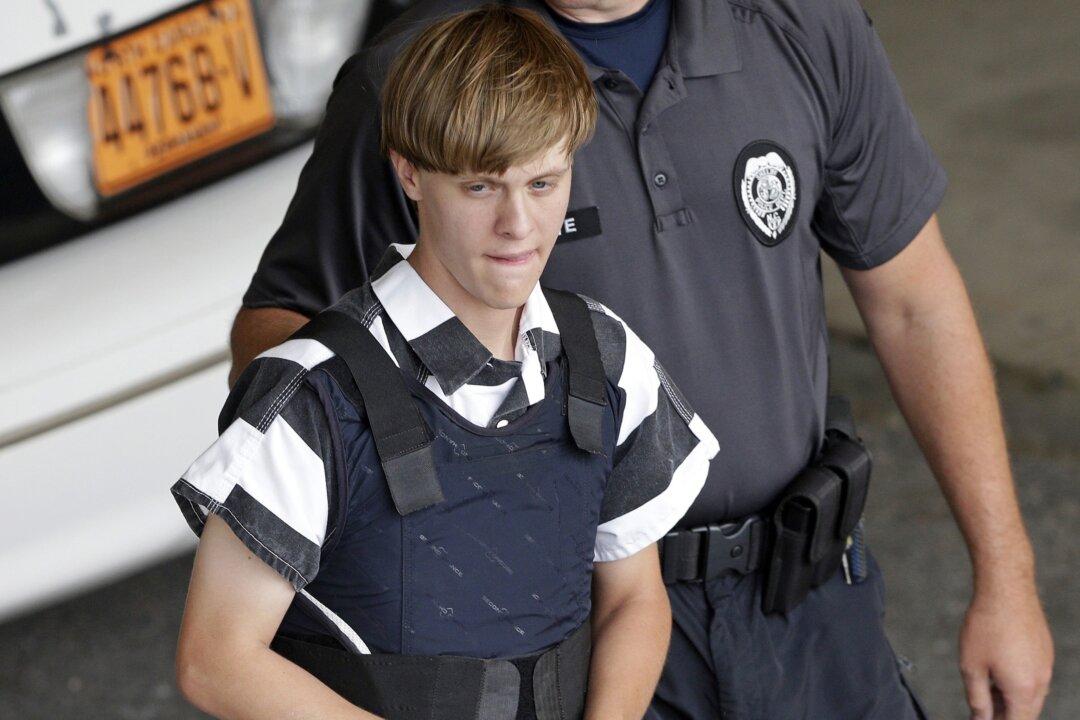The Supreme Court refused to hear the death-penalty appeal of an avowed white supremacist who killed nine people in a shooting rampage at a black church in South Carolina in 2015 in an effort to spark a race war.
The court announced in an unsigned order on Oct. 11 that it wouldn’t take the case of Dylann Storm Roof, a self-described white nationalist and the first individual in the United States to be sentenced to death for a federal hate crime.





